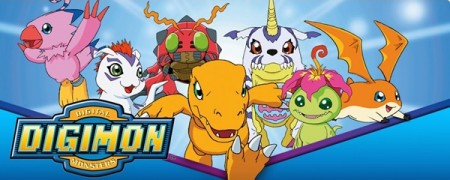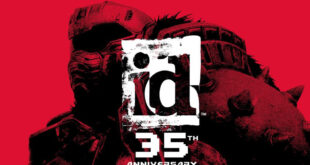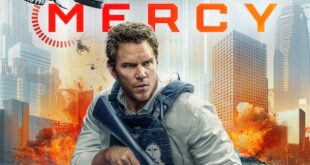The success of Digimon: Digital Monsters was a team effort that consisted of a talented voice cast, and those that worked from behind- the scenes. Jeff Nimoy was a voice director, writer, and actor for seasons one and two, Digimon The Movie, and the fifth season: Digimon Data Squad.
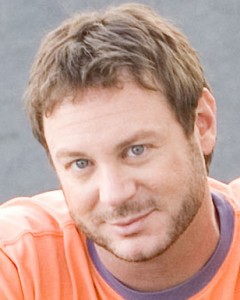
As a little boy Nimoy drew inspiration to become an actor and writer from a lot of different places. He said that his mother made the mistake of letting him have a black and white television set in his bedroom. This caused him to stay up late watching television and being too tired for school the next morning.
“I pretty much watched the Tonight Show with Johnny Carson every night, seeing all the top stars of entertainment at that time, and watching every show that was ever in syndication at that time, and every old movie. I learned story telling from the masters. Of course, I watched a lot of Saturday morning cartoons, on my grandparents color TV.”
“If I had to say one character influenced me more than any other, it would have to be Bugs Bunny. The fact that Mel Blanc did every voice inspired me to impersonate a lot of different people. Little did I know years later my voice would be on Saturday morning cartoons too.”
Nimoy began writing for Digimon: Digital Monsters around episodes 14 or 15 with his then business partner Bob Buchholz . Together they had a production company.
Wendee Lee was the main director at the time, and Nimoy said that he became a director completely by accident.
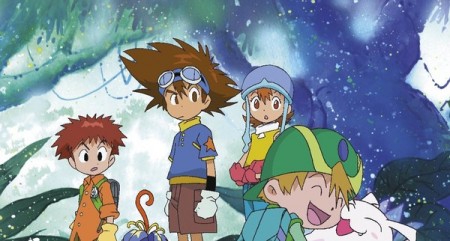
Michael Sorich was one of several directors for Digimon Digital Monsters and one of the people, that had filled in for Wendee when she was on her honeymoon.
“Rita Acosta (Who was part of the production crew) called me one day in a panic and said: ‘Wendee is on her honeymoon, Michael didn’t realize he was directing today, and are you available?’ So I showed up and it was a strange week. They asked me to finish the week because Michael was booked on something else, and during that week Rita got promoted, and Terri-Lei O’ Malley got promoted to producer. She and I had quite the working relationship.”
“She asked me right then and there to become what is called the ‘Show Runner’ and that is the creative force behind the show, and who handles most of the creative decisions. That’s how I became the director,” he said.
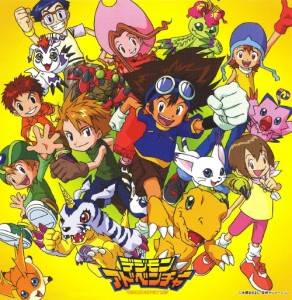
Nimoy explained what his responsibilities are as a voice director compared to a voice actor.
“The actor has very little to worry about. You have to just show up and read lines, you don’t have to memorize anything. The director has to worry about not just the actor’s performance, but before we even get into the booth there is quite a bit of work to be done to make sure the script is ready to go. Then when you are in the recording session there is a lot of time and money management. So the actor usually has about a 2-hour session, and you have a whole schedule on the day you don’t just go in for one actor and call it a day, you usually schedule the whole show, and cast. You know? Like how a dentist would book all their patients,” Nimoy said.
All of the scheduling is usually done by the production team or the producer.
“The director has to manage that time. So if an actor is coming in at 1 o’clock and another actor starts at 11, you have to make sure you have all those lines in. You have to gauge, write how far along you want, and make it work.
If you go over time that’s bad because that means extra money is being spent and the producer gets mad at you. A lot of people think it’s all creative, like: ‘Your emotion in this scene is this and that’ but if you hire the right actor, the actor is giving you that performance, and you just have to tweak them a little bit here and there.”
As time went on Nimoy’s list of responsibilities grew, but explained that this is something he doesn’t fear but something he embraces.
“When you’re the kind of person I am we get into the business to do these things. We have the kind of personality of juggling many balls at one time, and we have a badge of honor that not everyone can do these sort of jobs so we relish that.”
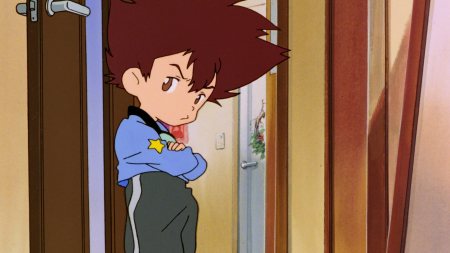
© Toei Animation
©Fox Kids
©Saban Entertainment
In addition to being a voice director Nimoy was also a script adapter for Digimon Digital Monsters, and shared what he was responsible for, and what a script adapter is for those unfamiliar with the term.
“Adaptation is another word for writing, but it’s used as a term for something that’s already been written in another language or another medium. For instance the Oscars have two writing categories: they have best original screenplay meaning it all sprung from the author’s mind or best adapted screenplay meaning it came from something else.
Maybe there was a book first and they adapted it into a movie. So these shows were done already in Japan obviously, so we have the Japanese translation and we have the animation. So to call it an original screenplay would be a bit of a stretch. It’s more of an adapted teleplay, where I am taking the existing Japanese animation and I am just writing a new American version.”
Nimoy also credits Bob Buchholz as he wrote a lot of the first drafts, and Nimoy polished it with him.
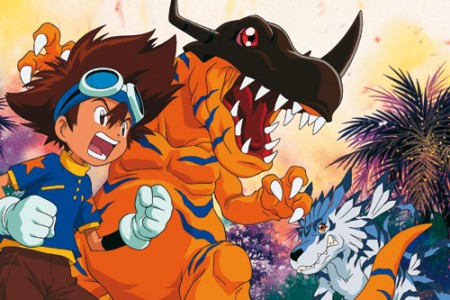
Digimon: The Movie was a huge success, and had a more relaxed schedule compared to the television show.
“The only difference was, that we had a little more time to do it. In the series you have an actor for two hours each, and you try to get as much work in as possible in those two hours.
In the movie there was a much bigger budget. Because of that extra time, we really took a little bit more time to get things right. Usually if an actor gave me a voice take and it was good I would take it. In the movie unless it was exactly what I was looking for, we just kept going until we got it, and there was more time for the actor to collaborate. With the television series I just don’t have time for the actor’s opinion, as I have to move on quickly. In the movie I got more input from the actors,” said Nimoy.
Even though Nimoy was writing, directing, and producing he said he still managed to maintain his voice acting career, and played Tentomon in season 2.
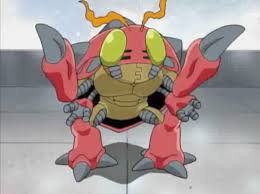
© Toei Animation
“Wendee called me about the series Digimon, and I went in saw the pictures of the characters, read the descriptions and we probably picked three characters each. I picked Matt, Gomamon, and another one. I auditioned and Terri-Lei O’Malley told me after the fact that she thought I was the perfect Matt but I didn’t get the gig,” he began.
“I didn’t get any roles but they (Rita, Terri, and Wendee) all knew me as a voice actor so they said: ‘We’ll call you in as there are so many roles in this show but we’ll call you in for incidentals.’ One day they called me in to do a bunch of of things, and I came in and I played Izzy’s dad. Then on another day Terri told me that Joshua [Tai] had too many roles, and the whole show was beginning to sound like Joshua Seth, and they didn’t want that. He was playing Motimon which is what Tentomon digivolved from, and he played all the different digivolutions.”
“So they started taking away roles from Joshua because Tai was much bigger than they had anticipated. They didn’t have me audition, they just had me voice match Joshua. By the third episode in doing Tentomon (Tentomon’s voice) he started to get more into my range and I started to do Tentomon like Jeff Nimoy would,” said Nimoy.
Having a range of responsibilities on Digimon: Digital Monsters helped Nimoy grow in a variety of ways.
“It certainly teaches you every aspect of the industry, and I would say most of it is not creative. Most of it is time, budgeting, and politics. When it’s a hit show everyone wants their credit, everybody wants to put their stamp on it saying: ‘Hey, I’m part of the success, I’m part of the reason for it’s success.’ Those politics led to me leaving almost five episodes to go before the end of season 2.”
Nimoy also wrote and directed the TV movie “Revenge of Diaboromon. That project preceded season 5 and marked his return to the franchise.
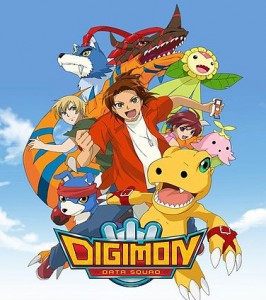
“I came back for season 5 because it was a new show, with a new team [except for Rita] and it was just a great experience. They really let me run the show my way at that point. It was very interesting to me because when you have that big of a show, sometimes you have to get approvals on everything, and for season 5 I had to get very few approvals on anything. It was like they trusted me completely. “
While he didn’t have much of an acting role, he did play Marcus’ father Spencer Damon.
Casting for Digimon Data Squad went smoothly for Nimoy, and he said that the cast were all perfect for their roles.
“The casting is 90 percent directing to tell you the truth. If you are spending a lot of time in that booth directing that actor then you didn’t cast right. If you kept the right personality then you’ll get the right performance from the actor- they’ll do all the work for you naturally. Quinton is a impulsive guy in his personality, and Crispin who played Thomas is a very analytical guy. They both just did that perfect personality for those particular characters. They had to audition for me because I needed some approvals from Disney, Bandai, and Toei Animation. They had the parts in my mind coming in. I knew that these were the people that I wanted.”
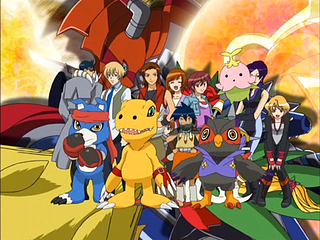
© Toei Animation
Nimoy shares what was the most rewarding experience in being a part of the Digimon franchise.
“Certainly Digimon Data Squad was very rewarding, however I have to say the most rewarding part was watching the movie. It’s not easy to get a movie in this town, that’s big! It was an 18 hundred screen release which is major in movies. That was very satisfying to me. I got into this industry to begin with to make movies.When that opportunity came down the pipe, and they offered myself and Bob a chance to write and direct the movie it was so satisfying. Sitting in a big movie premiere, seeing your name on the big screen and the whole audience starts to cheer for you, it’s unbelievable. All your dreams come true.”
For those that want to connect with Jeff Nimoy you can do so at the links below:
Jeff Nimoy’s Anime Page on Facebook
Twitter: @jeffnimoy
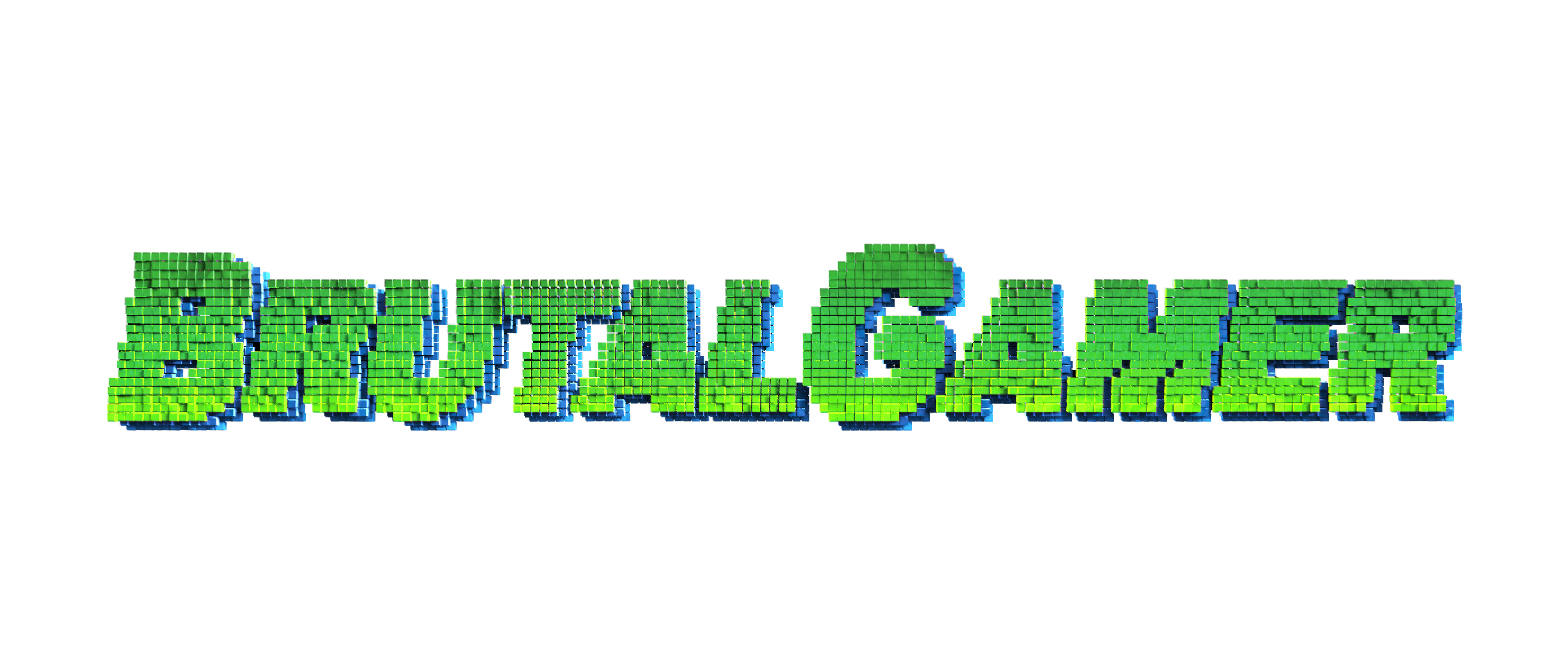 BrutalGamer Bringing you Brutally Honest feedback from today's entertainment industry.
BrutalGamer Bringing you Brutally Honest feedback from today's entertainment industry.

